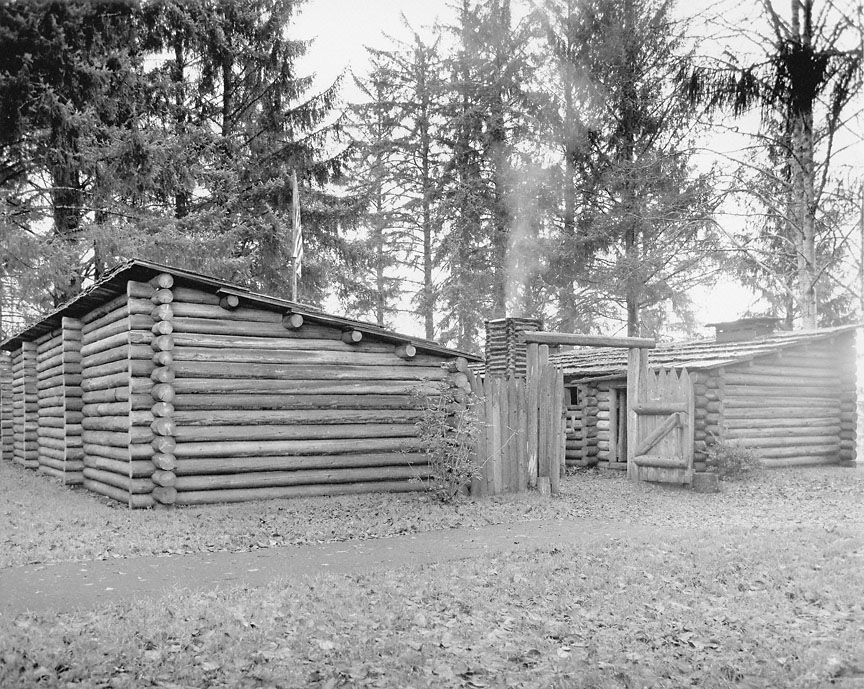For people living in the Pacific Northwest, few historical events have more imaginative power than the Lewis and Clark Expedition. Students learn about the journey, popular writers come back to it again and again, tourists travel to see where it happened, and regional scholars interpret it. We live in Lewis and Clark country in Oregon, and the exploration of 1805-1806 affects how we understand the state and its past. The Lewis and Clark Expedition has meaning for us, and its two-hundredth anniversary brought thousands of visitors to Oregon to see where the explorers went, to imagine what they experienced, and to ask questions about what has happened in the state since they paddled up the Columbia River in 1806 on their way back to St. Louis.
With these things in mind, the authors offer this narrative as an invitation to make connections with an American epic. One of the connections that Oregonians made was the Lewis and Clark Exposition, held in Portland in 1905 to promote the region's commercial potential. The centennial's connection to the Lewis and Clark Expedition a century before was mostly suggestive, except that both enterprises had ties to economic expansion in the name of an ambitious nation. By revisiting both events in this narrative, the authors provide ways to think about the bicentennial commemoration of the Corps of Discovery in 2005-2006. The narrative is followed by a conversation that explores the meaning of Lewis and Clark in the twenty-first century.
William L. Lang is professor emeritus of history at Portland State University and the author and editor of many works on the history of the American West, including Great River of the West: Essays on the Columbia River. Carl Abbott is professor emeritus of urban studies and planning at Portland State University. He has published extensively on the history of city planning, the evolution of U.S. urban policy, and the relationships between urban growth and regional development. Roberta Conner (Umatilla, Cayuse, Nez Perce) is director of the Tasmástlikt Cultural Institute in Pendleton and was vice president of the National Lewis and Clark Bicentennial Council Board of Directors. At the time of the original conversation in 2004, Christopher Zinn was director of the Oregon Council for the Humanities.
Introduction
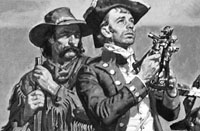
Anniversary commemorations of important events in our nation’s past predictably generate great interest. Centennial and bicentennial commemorations attract even greater public interest, because the passage of time often enhances events and makes them truly larger …
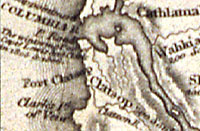
Lewis and Clark Track across Western North America, 1821 (map detail) CN 054377
The Lewis and Clark Expedition is a complex event in American history. The story of the great exploration of the Far West from 1803 to 1806 has been told many times by scholars, essayists, biographers, …
- UNDERSTANDING THE EXPEDITION
- JEFFERSON'S IDEA
- JEFFERSON'S INSTRUCTIONS
- LOUISIANA PURCHASE
- INTO THE NEW TERRITORY
- ACROSS THE PLAINS AND INTO THE OREGON COUNTRY
- ENCOUNTER WITH THE NEZ PERCE
- DOWN THE COLUMBIA
- AN INHABITED LAND
- OCEAN IN VIEW
- STEALING A CANOE
- UP THE COLUMBIA AND BACK WITH THE NEZ PERCE
- HOMEWARD BOUND AND A FATAL ENCOUNTER
- THE RETURN HOME
- AFTER THE EXPEDITION
- CLARK, POMP, YORK, AND SACAGAWEA
- COLUMBIA LEGACIES
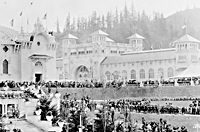
Lewis&ClarkExpo1905P200
- LEWIS AND CLARK CENTENNIAL AND AMERICAN PACIFIC EXPOSITION AND ORIENTAL FAIR
- THE BOOSTER CITY AND BUSINESS LEADERS
- DESIGNING THE FAIRGROUNDS
- CELEBRATING SETTLEMENT: AGRARIAN OREGON
- MAKING A TIMBER INDUSTRY
- A HELPING HAND FROM WASHINGTON
- AMERICA'S PACIFIC VISION
- ASIA AT THE FAIR
- THE EXPOSITION AND NATIVE AMERICANS
- ARROGANT "ANTHROPOLOGY" AND THE DYNAMICS OF ETHNIC CHANGE
- THE ELECTRIC CENTURY: THE PROMISE OF TECHNOLOGY
- LOOKING TOWARD THE FUTURE
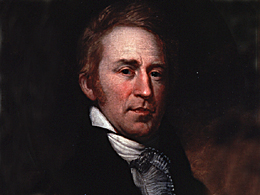
WilliamClarkPortraitP260
